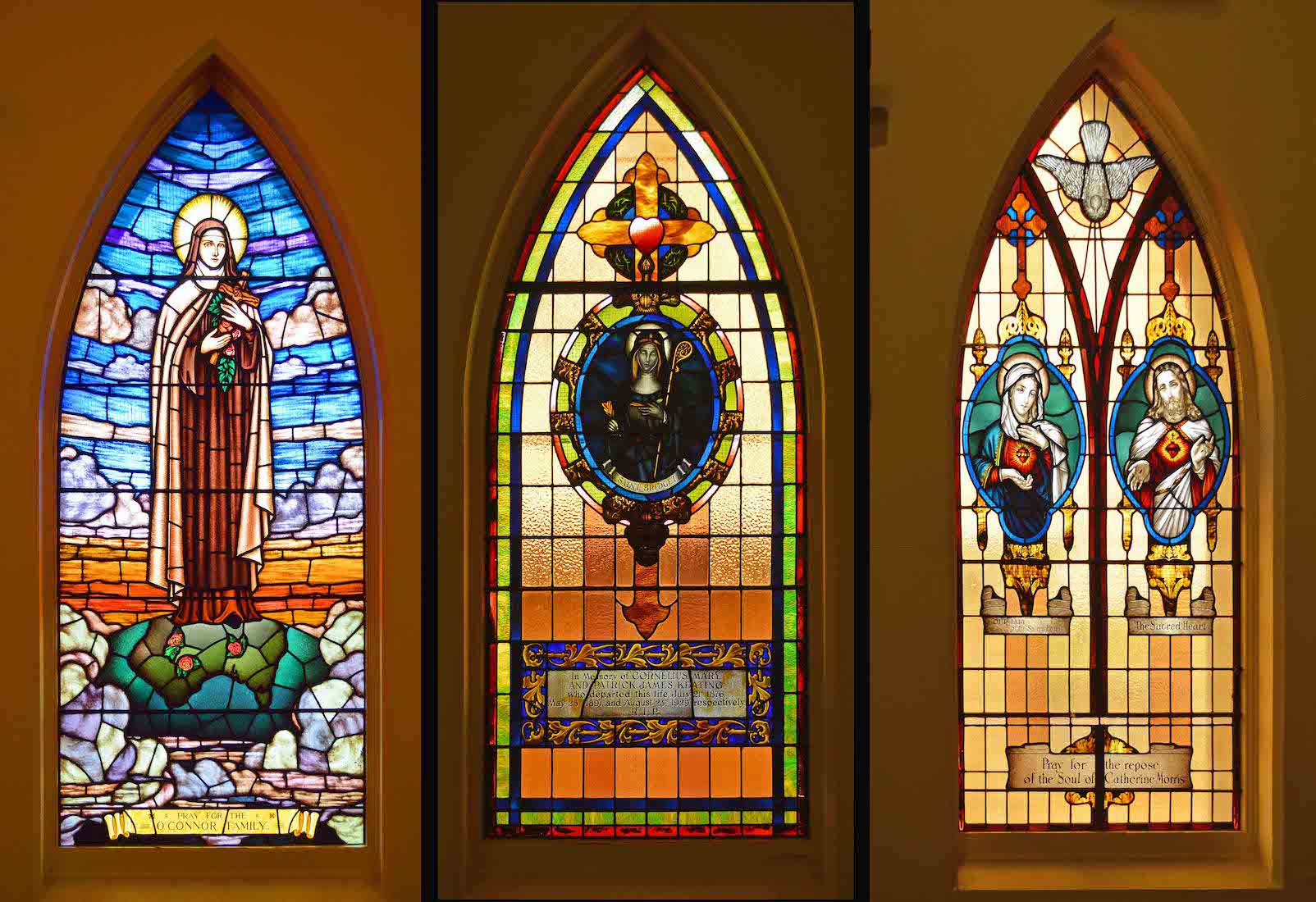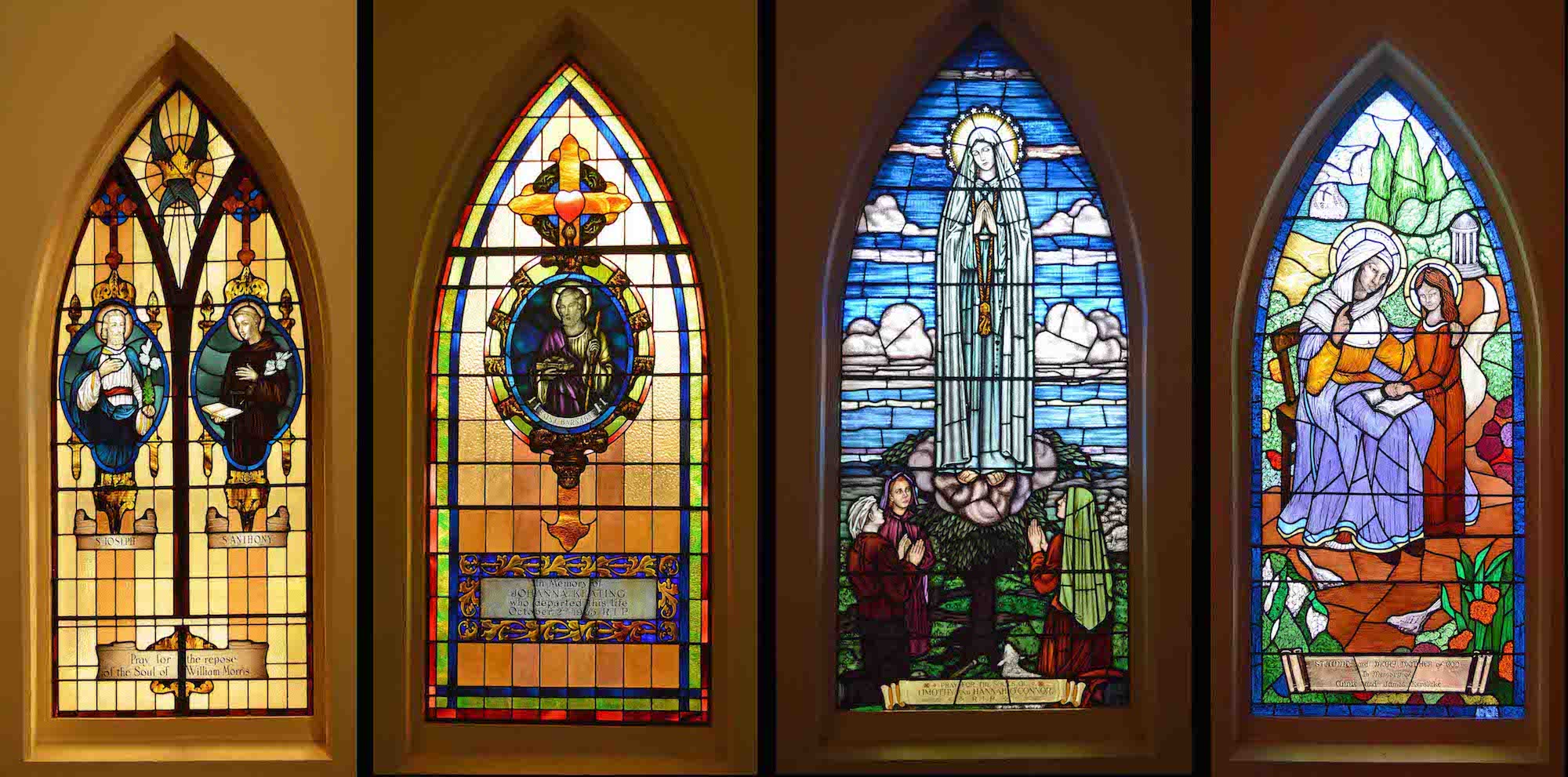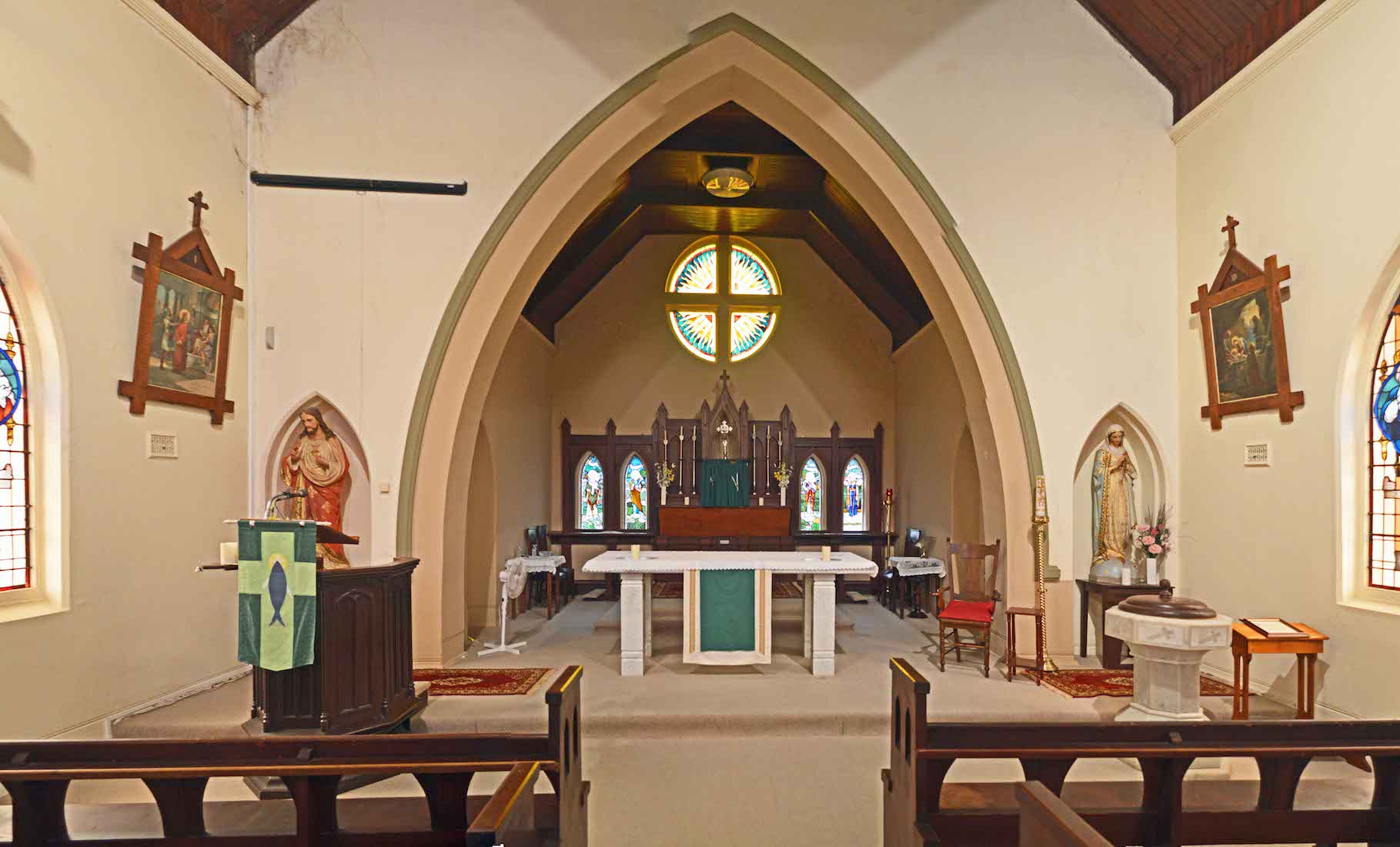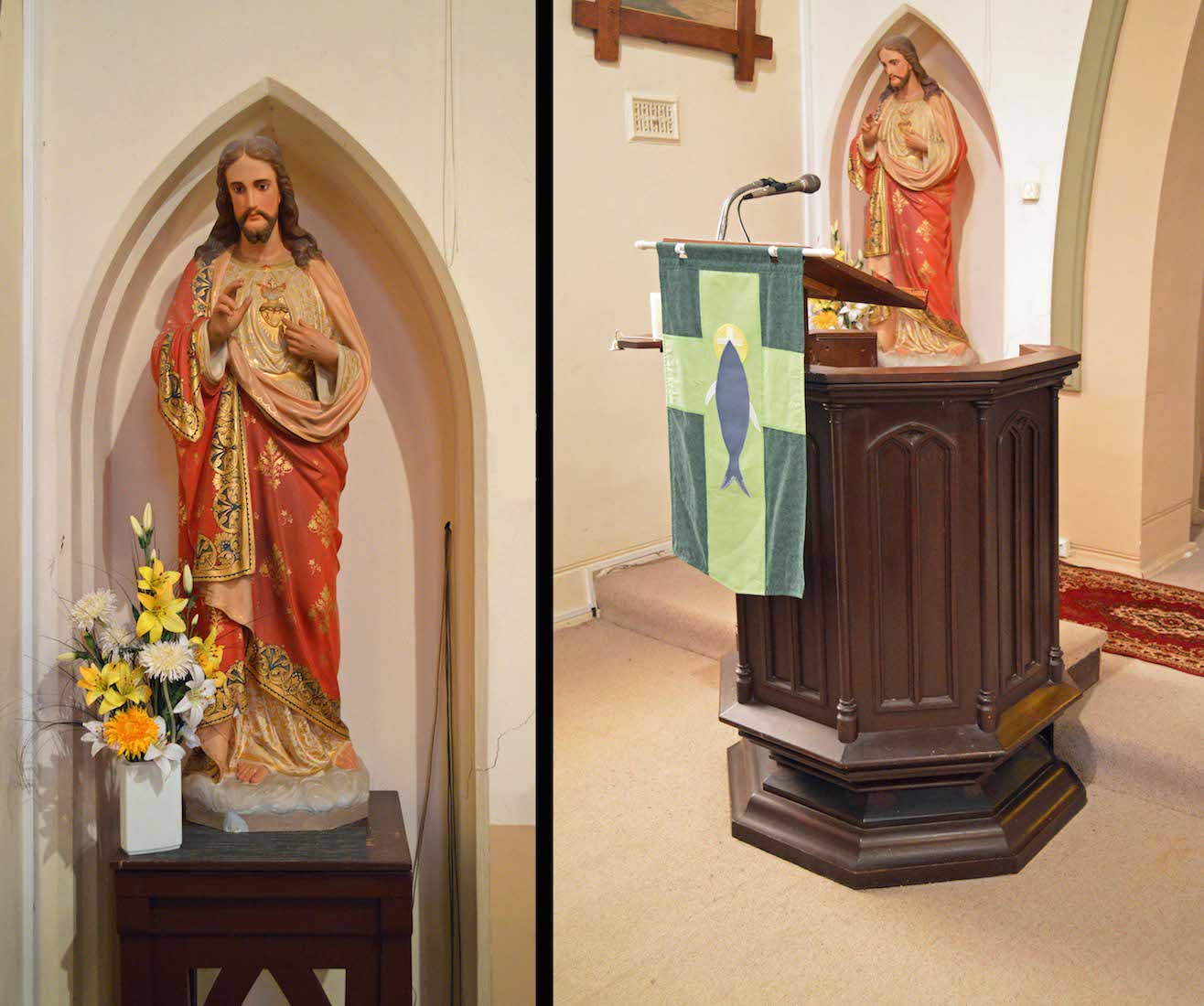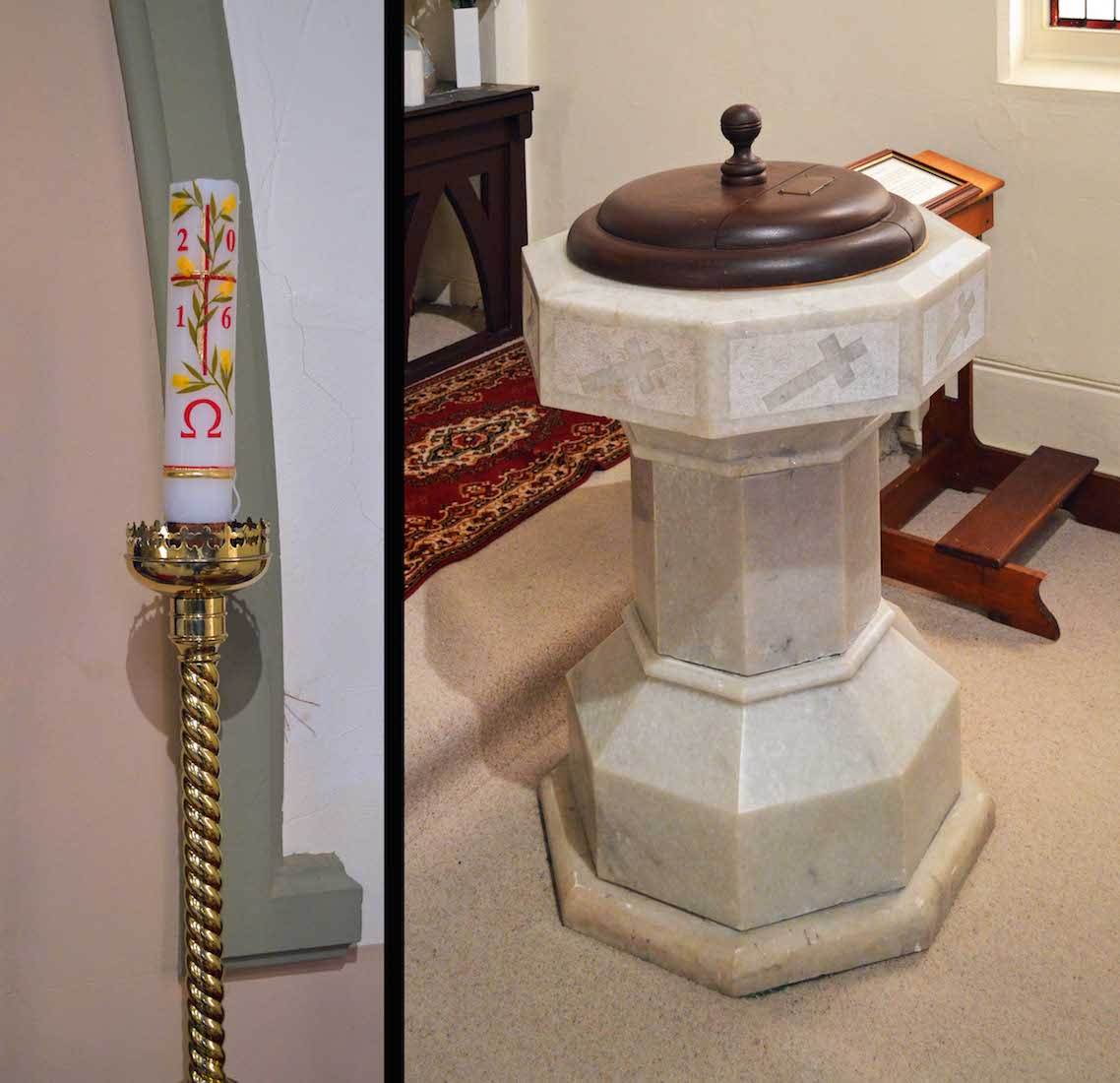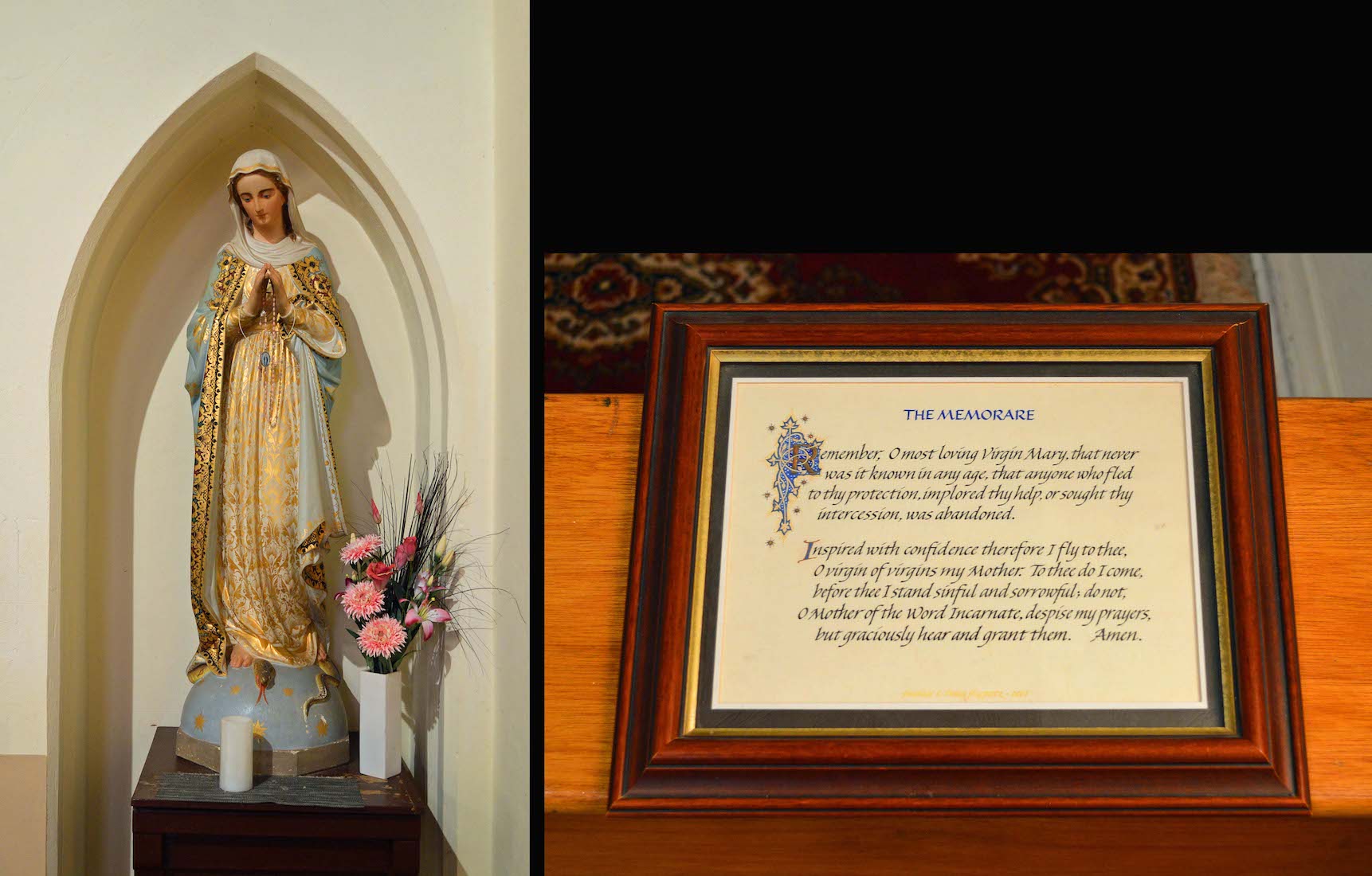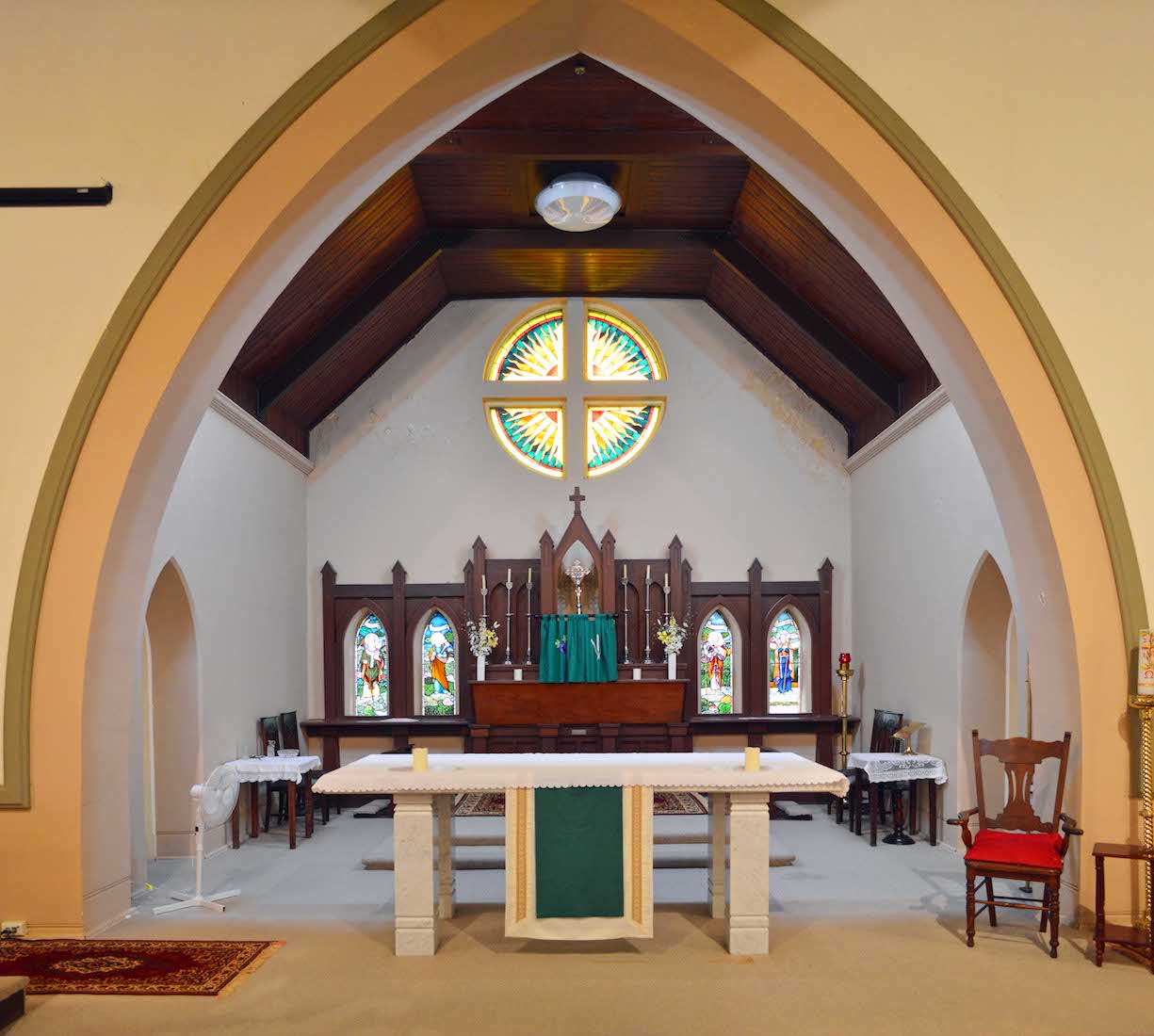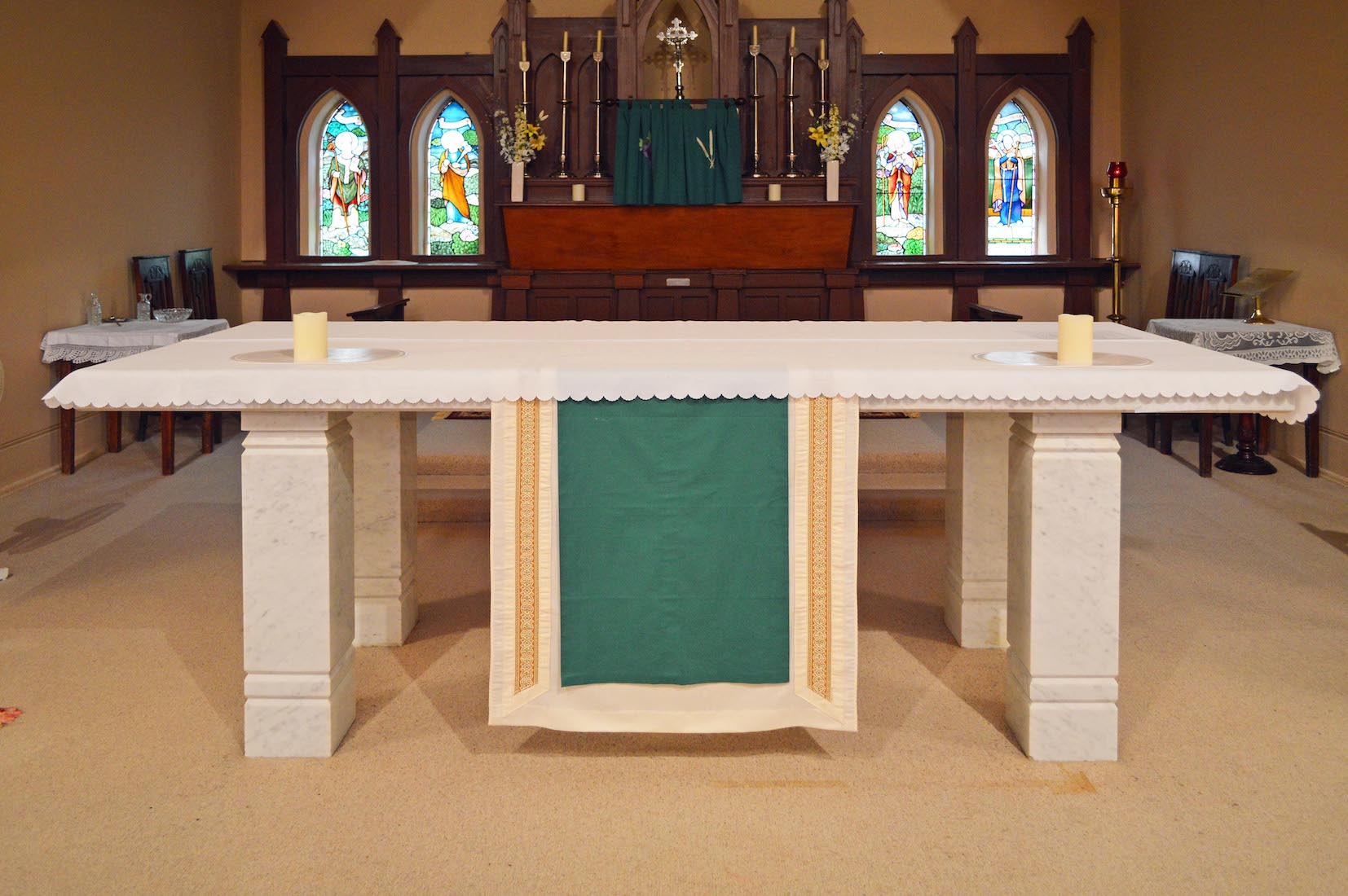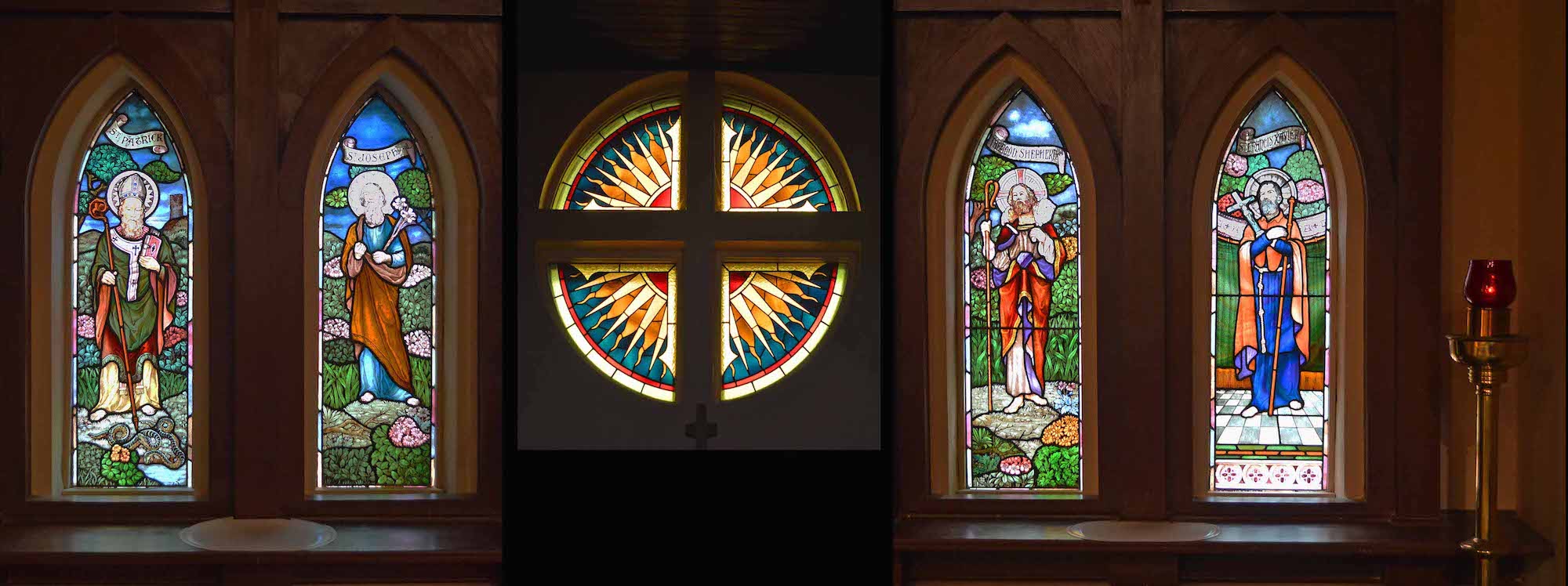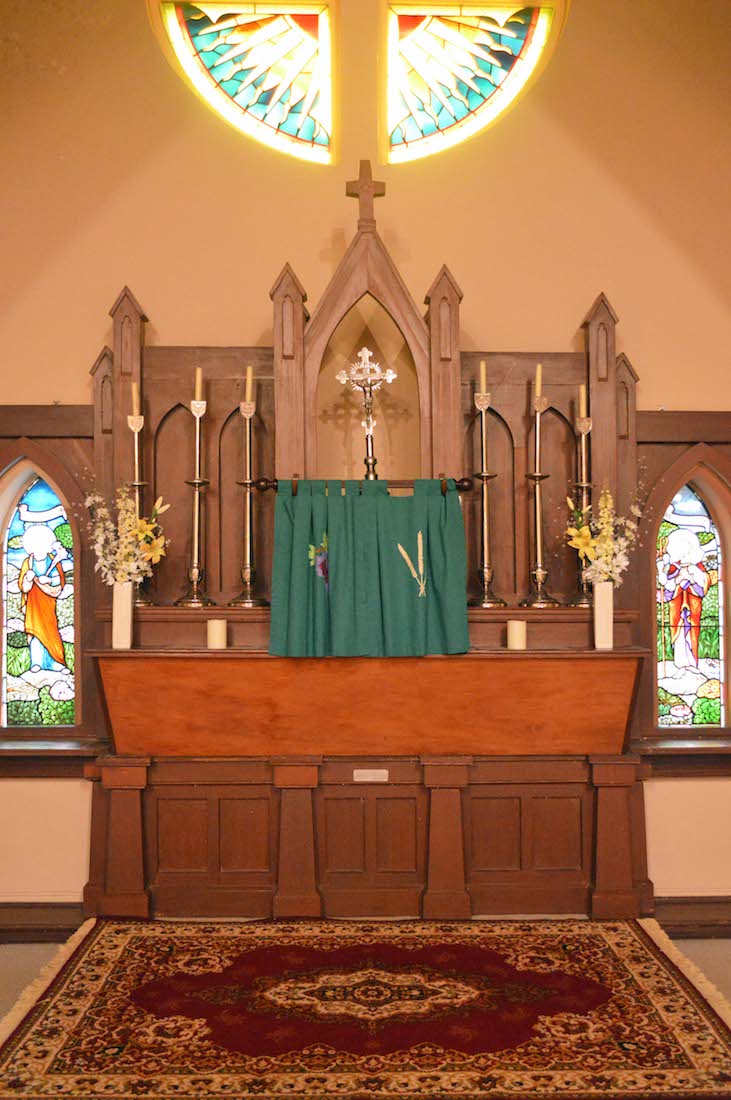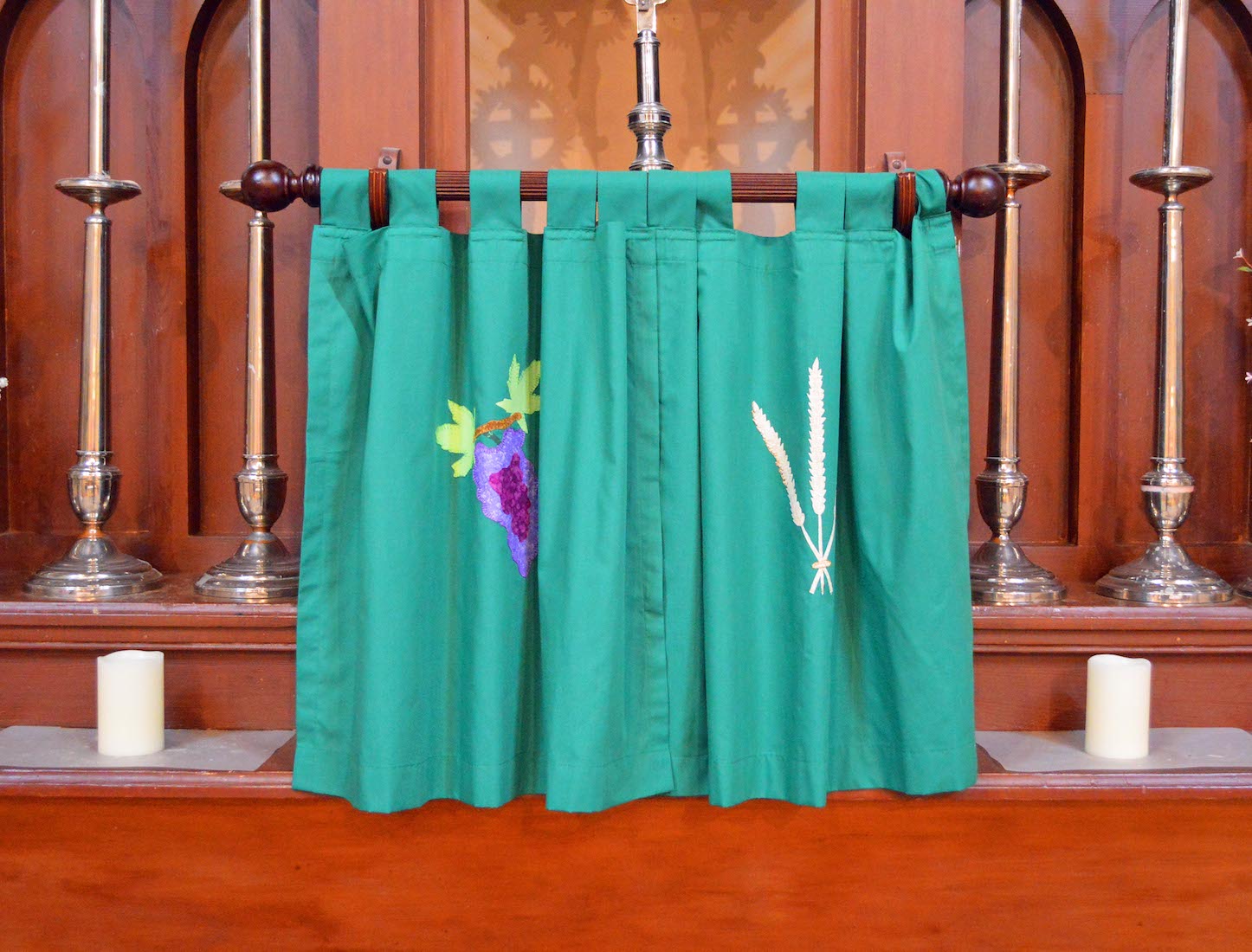21. STATIONS OF THE CROSS – NORTH WALL
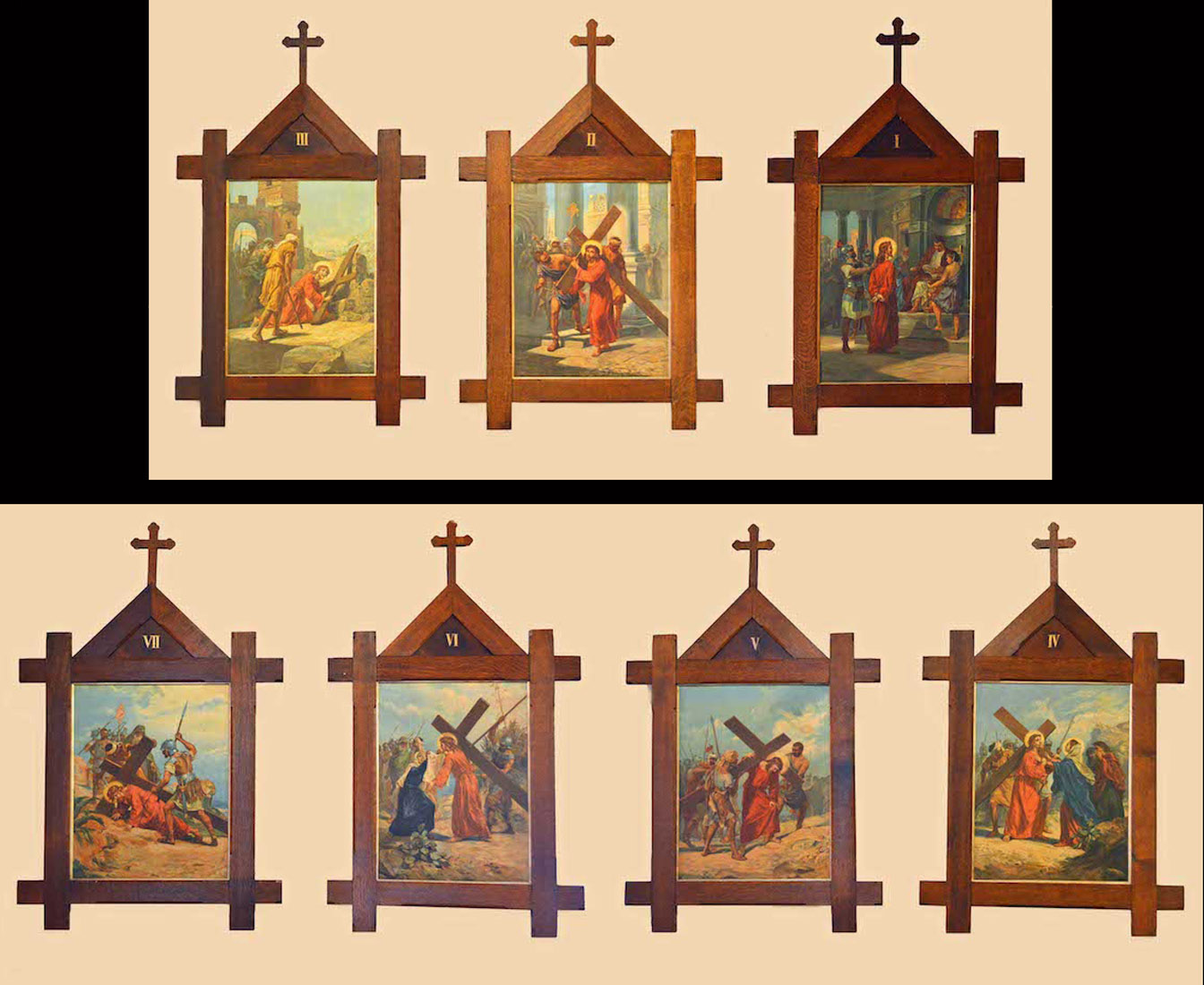
There are 14 Stations of the Cross which depict scenes of Jesus’ journey to the Cross on that fateful day. These seven stations are on the North wall of the nave. INDEX
22. STATIONS OF THE CROSS – SOUTH WALL
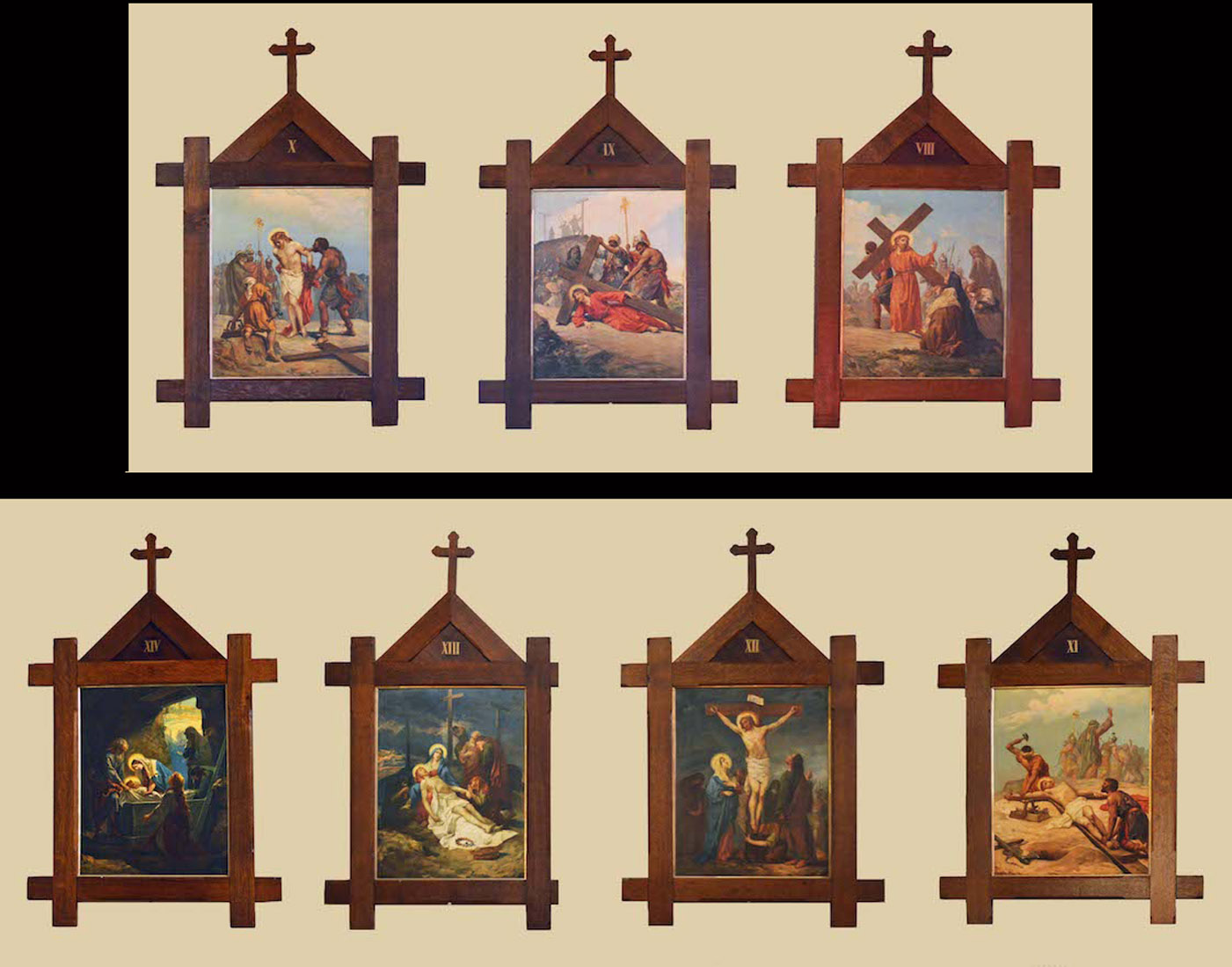
The stations are used as a devotional aid, particularly around Easter time. Sometimes these days a further 15th Station is added, depicting the Resurrected Christ.
23. NORTH NAVE WINDOWS
Because of the Lady Chapel, there are just three windows in the North wall of the nave. The window at left shows St. Thérèse of Lisieux and is in memory of the O’Connor family. The central window depicts St Bridget and is in memory of Cornelius, Mary and Patrick James Keating. The window at right shows The Sacred Heart and Mary of the Sacred Heart, and is in memory of Catherine Morris.
24. SOUTH NAVE WINDOWS
There are four windows in the South wall of the nave. From left we have: • St Joseph and St Anthony [memory of William Morris]; • St Barnabas [Johanna Keating]; • The Virgin Mary [Timothy and Hannah O’Connor]; • St Anne and Mary, Mother of God [Annie and James Kerslake].
25. EAST END OF NAVE
We now focus our attention on the East end of the nave – in particular the items on either side of the sanctuary arch.
26. PULPIT AND SACRED HEART
As we face the sanctary, the pulpit is on our left. This is traditionally the place from which the Gospel is proclaimed Sunday by Sunday. This Church appears to have no lectern, so perhaps this pulpit is more widely used. The green banner displays the Christian fish [ichthus]. Behind stands a statue of (Jesus) the Sacred Heart. This is one of the most widely practiced and well-known Roman Catholic devotions, taking Jesus Christ's physical heart as the representation of His divine love for humanity.
27. PASCHAL CANDLE AND FONT
On the other side of the nave stand the Paschal candle and font. Many churches have a Paschal candle which has particular significance at Easter time with its allusion to Jesus being the Light of the world. The font is attractive with sloping crosses etched around the octagonal rim. There is also a small plaque on the lid which unfortunately I failed to photograph ... Also on the South side is an altar to the Virgin Mary ... .
28. VIRGIN MARY
The serpent underfoot is an indirect reference to Genesis 3:15. The text on the kneeling desk reads: THE MEMORARE Remember O most loving Virgin Mary, that never was it known in any age, that anyone who fled to thy protection, implored thy help, or sought thy intercession was abandoned. Inspired with confidence therefore I fly to thee, O virgin of virgins my Mother. To thee do I come, before thee I stand sinful and sorrowful; do not O Mother of the Word Incarnate, despise my prayers, but graciously hear and grant them. Amen.
30. NAVE ALTAR
The most obvious feature of the sanctuary is the nave altar. In the early 1960s a Vatican decision meant that churches would have a forward nave altar, close to the congregation, and with the Eucharist administered by a priest facing the people. So this altar is where the action takes place ... .
31. SANCTUARY WINDOWS
Across the back of the sanctuary are four lancet windows, and a high round window with a sunshine motif. From the left, the lancet windows show: • St Patrick; • St Joseph; • The Good Shepherd; and • St Francis Xavier. The sanctuary lamp at right indicates the presence of Reserved Elements of the Eucharist. St Patrick has a snake at his feet (no snakes in Ireland!), and St Joseph is identified by a sprouting staff – in accord with an old legend.
32. HIGH ALTAR AND REREDOS
Many older churches retain their high altar, and in fact still use it on special occasions. The reredos is the screen behind the altar. This reredos is a plain but handsome piece of timber furniture.
33. TABERNACLE
Churches where the priest especially blesses the Elements of the Eucharist usually keep some ‘reserved’ Elements for use during the week, for example to administer to the sick. These are kept or enclosed in a ‘tabernacle’. As mentioned before, the lit sanctuary lamp indicates the presence of such Elements.
34. CRUCIFIX
This silver Crucifix with its symbolic crown of thorns draws attention to the fact that it is the crucified Christ who is central to our faith. Exterior crosses on tower and gables remind us that Christ also rose from the dead and lives today. This completes our tour of the Church of the Good Shepherd.
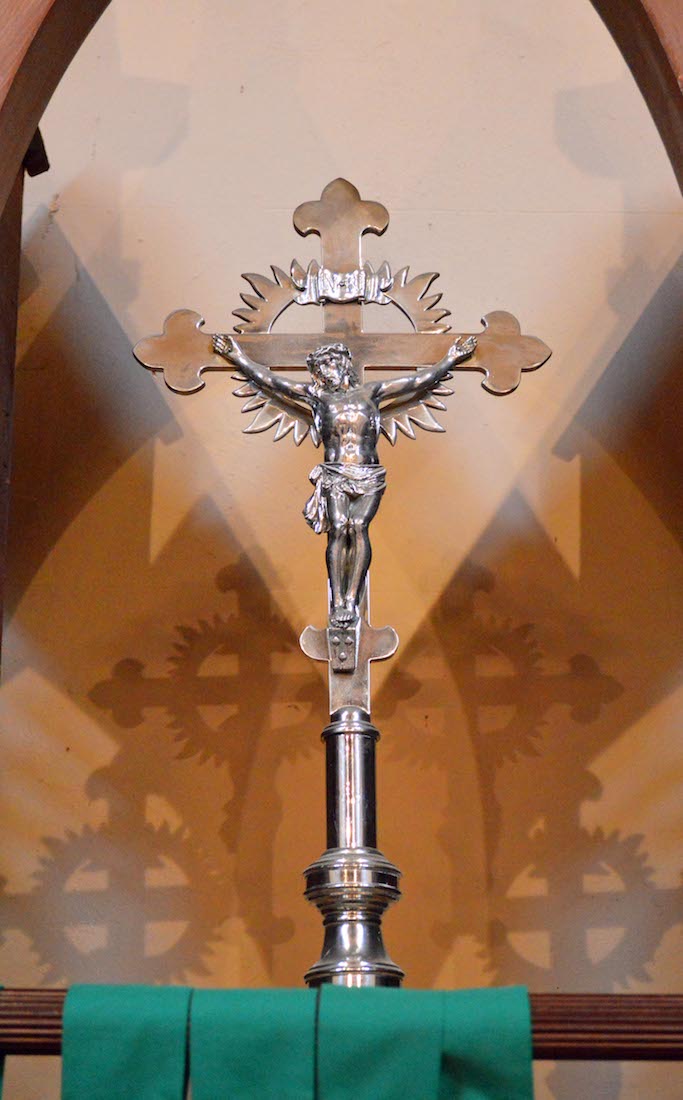
CONCLUSION
I hope you have enjoyed visiting the Good Shepherd Catholic Church, Strathalbyn with me. I found it to be one of the more interesting churches on our visit to the South Coast.
I am happy to receive constructive comments or corrections concerning this website. The best websites are the ones which have no errors! I am grateful to my wife Margie who came to Strathalbyn with me, and who has proof-read these pages. I am also grateful to Father Richard Morris who gave me access to this Church.
The Church is linked to the Parish website at
http://www.barkerstrathcatholic.com/
The photographs which appear on this site can also be found in higher resolution at:
https://www.flickr.com/photos/paulscottinfo/albums
Site created 02 / 2017 ; reformatted 01 / 2021
Paul Scott

